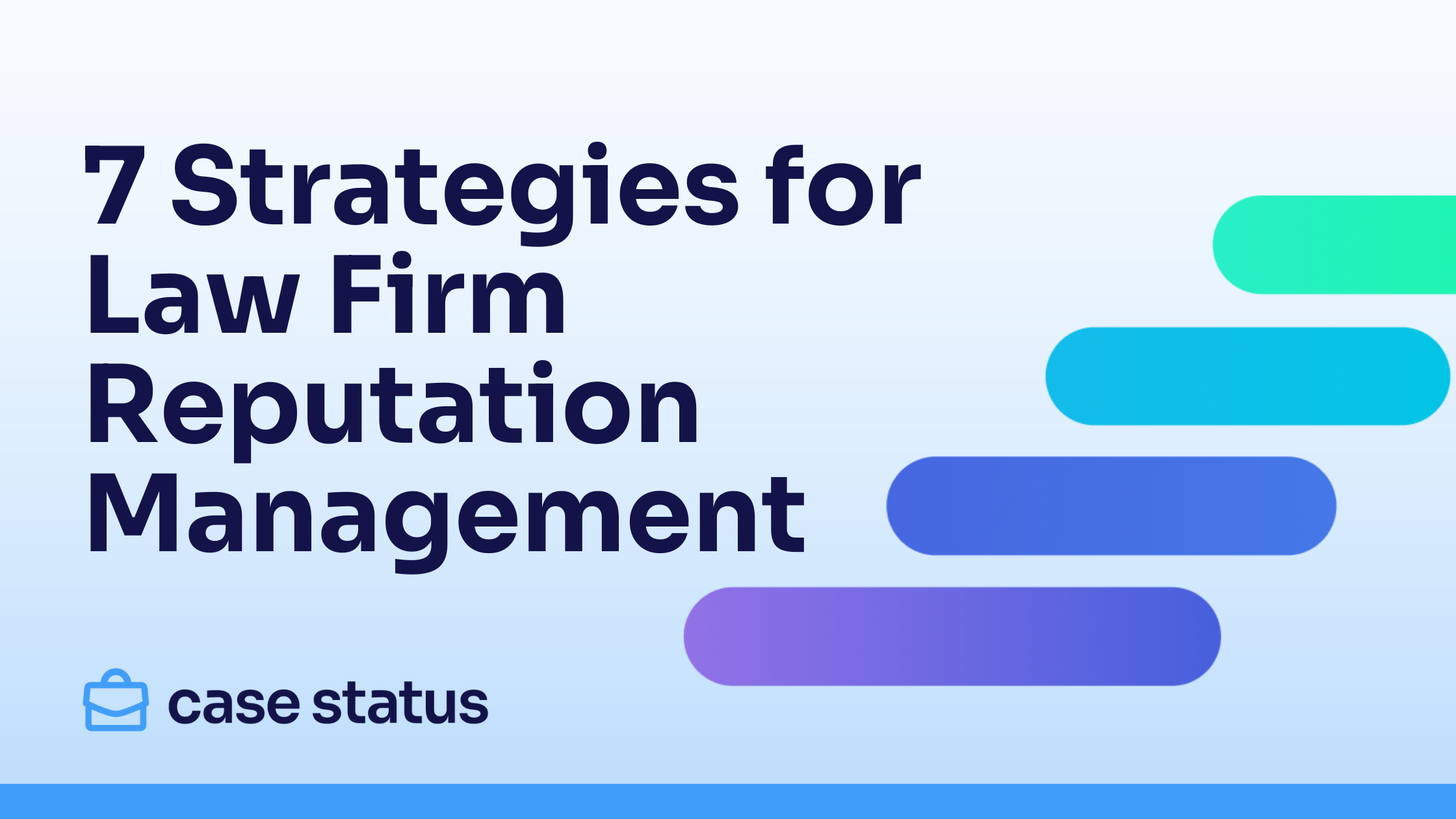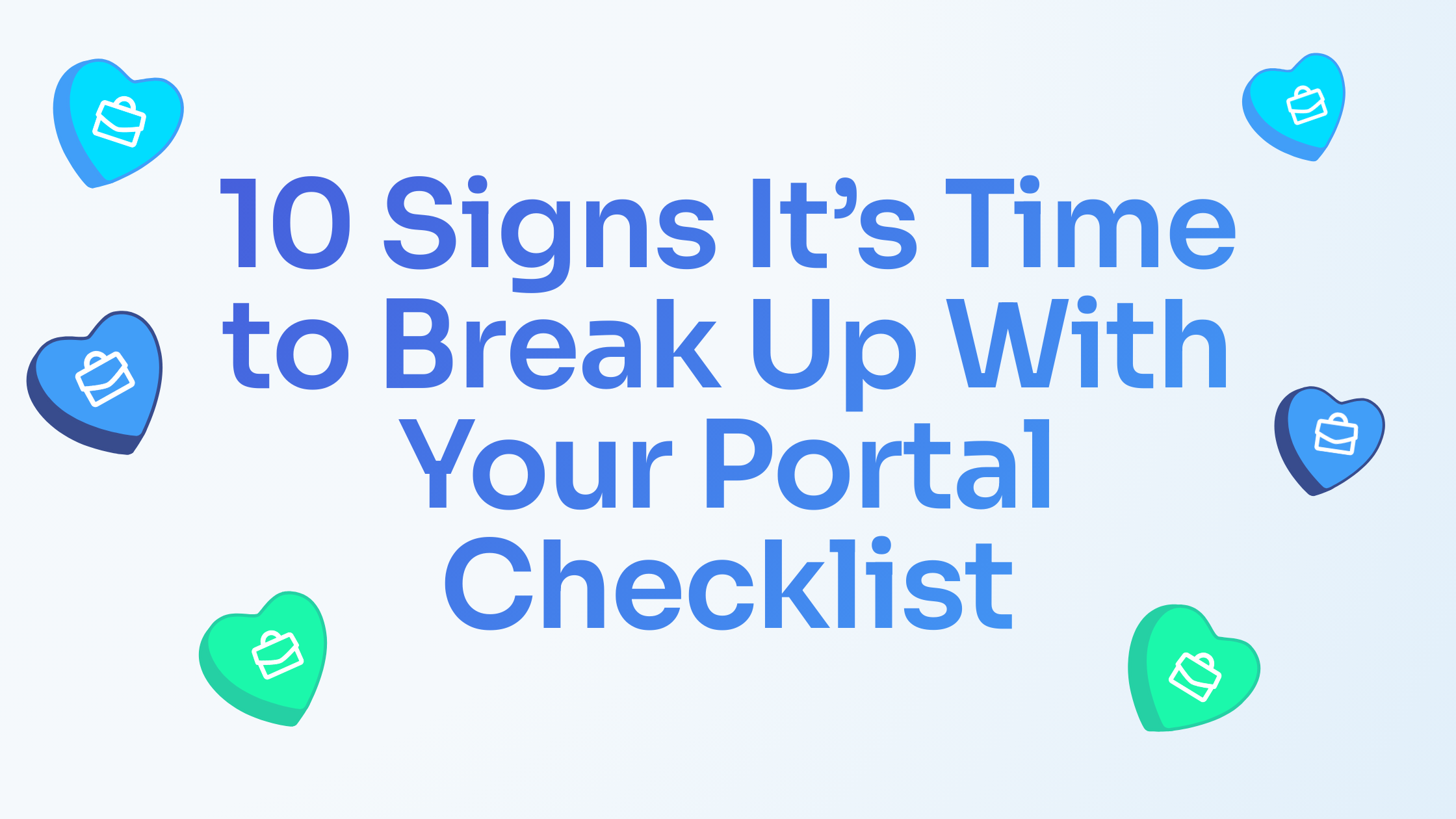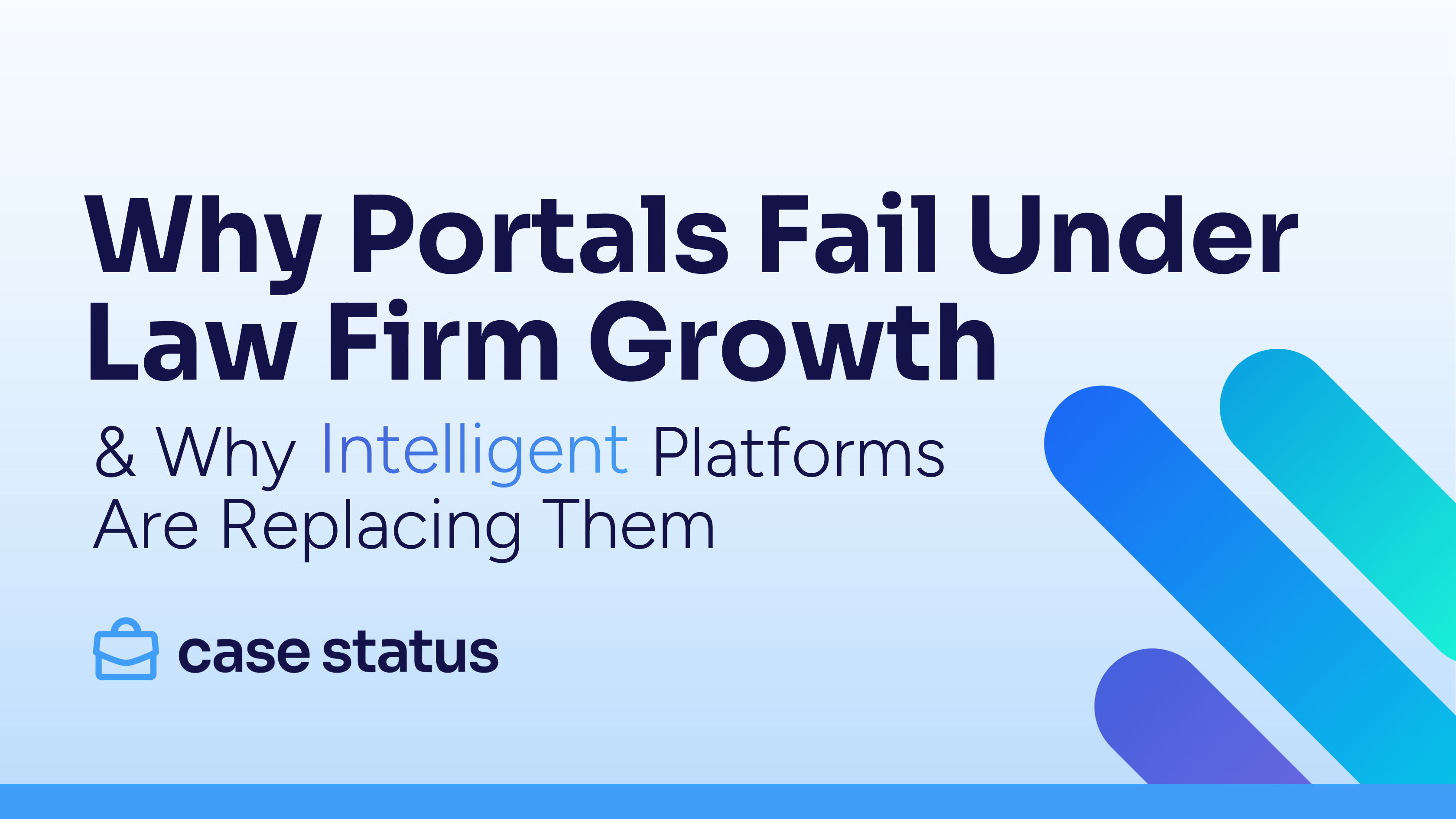
Big or small, every law firm wants to improve how it generates clients. On average, law firms spend 49% of their annual budget on marketing, yet many still find themselves spending dozens of non-billable hours chasing leads that don’t become customers. The biggest question a lawyer should ask today isn’t, “How do I get more leads?” They should be asking, “How do I get more of the right leads?” That’s where a CRM for law firms comes into play.

What Is a CRM for Law Firms?
A CRM is a type of law firm software that manages individual accounts for all of your clients, leads, and prospects. It helps law firms manage various business needs in one centralized location, like client intake, scheduling, and revenue tracking.
When you incorporate a CRM into your practice, you gain greater control over your entire marketing strategy. Instead of having to separately manage email campaigns, social media ads, consult requests, and phone calls, you can keep everything organized in one user-friendly legal client app.
What does CRM stand for?
CRM stands for “Client Relationship Management,” and it describes a software that helps a company track its leads and maintain its clientele with ease. A law firm CRM is specifically designed to support the unique challenges and demands of legal marketing.
Lawyers have short timelines and tight schedules, which can complicate their marketing strategies. A law firm CRM software is the easiest way to speed up your marketing efforts while closing more details with leads.
A CRM can help you avoid pursuing leads who are not going to convert, and it can improve the satisfaction of your customers from start to finish. It can also support ongoing loyalty from satisfied clients, which can lead to more referrals.
We always suggest using an industry-specific CRM because it addresses the unique needs of your business.
Why Do Law Firms Need CRM?
There are a number of reasons why law firms can benefit from a CRM. The best part is that the features of a legal CRM are flexible, meaning you can pick and choose which benefits you want to maximize and forget about the rest. That being said, even the features you don’t use can easily be picked up and integrated into your business whenever you need them.
Speeds Up Client Acquisition
The greatest advantage of a CRM is its ability to accelerate your client acquisition. Bringing business to a law firm can be a full-time job, so you need a tool to make the process as painless as possible.
Instead of chasing leads and hoping for the best, you can use a CRM to customize and enhance your client intake process. This makes it easier to determine who viable leads are from the start, even before you’ve made your first phone call.
Customizable client intake forms build strong portfolios in your CRM, which you can use to follow up and deliver more personalized service from the start.
Even your slowest lead drip campaigns can become more effective with a CRM. The inclusion of marketing metrics allows you to easily gauge how well your messages are working by partnering them with specific actions leads are taking.
With this top-level view of your legal marketing, you can make more effective changes that lead to faster conversions and a steady flow of clients for your firm.
Improves Lead Generation
Client intake software makes it easier to generate leads, but a CRM goes much further than that. Lead tracking allows you to see your firm’s entire history with a lead, including the last time it was contacted by your practice. With a CRM, no one falls through the cracks, and it’s much easier to avoid missing out on prospects that could have become long-term clients.
You can create a pipeline in your CRM that guides leads through the conversion process automatically. Instead of rehashing the same script 10 times or more a day, you can have the CRM send marketing information to leads via email that showcases your firm’s value proposition.
You can focus on delivering answers to questions clients usually have, and cover important topics like:
- Your practice area
- Your years of experience
- What to expect working with your firm
- A typical case lifecycle
- Why they would benefit from hiring a lawyer (and more specifically, you)
- Success stories and client testimonials
You can personalize campaigns by pipeline, which is helpful if your firm has various specializations. Furthermore, you can make adjustments to A/B test your outreach, like changing the interval between messages and altering email subject lines and calls-to-action.
Legal clients are not as easy to acquire as other types of customers. People might look up a divorce lawyer near them even though they haven’t committed to separating from their partner. A person who just thought about writing a will might land on an estate lawyer’s website but put off hiring them for months.
The complexity of people’s lives means that attracting and converting legal clients quickly is like a game of chess. You can’t control the board, but you can learn how to think more strategically and improve your odds of winning each time you play.
Personalized experiences matter to customers; 70% of buyers in a 2021 consumer behavior report said that it was important for brands to offer them a personalized experience. Lawyers tend to focus so much on their services that they overlook how individual each client’s experience truly is.
A CRM and client communication software like Case Status can change that. We offer lawyers in every practice area the opportunity to connect better with their clients. This comes through an easy-to-use interface and client-friendly dashboard that offers fast answers to common questions.
We also have a built-in messaging system you can respond to from your phone. Clients have guaranteed touchpoints that ensure your law firm gives every individual the care they deserve. Through automated integrations, your company can speed up communication to satisfy customers while reducing pressure on staff and minimizing interruptions to your workflows.
Learn More About Our Automation
Strengthens Client Relationships
Lawyers are ironically not the most skilled at customer service. Despite the fact their jobs depend on engaging with their clients, many of them struggle to deliver the level of service people need. It’s not the lawyer’s fault — between working 60+ hours a week and managing a law firm, there’s little time to schedule off-the-clock for meaningful interactions. And let’s not even talk about how much less time there is for lawyers with families waiting at home.
A lot of attorneys expect their jobs to take up the majority of their time, but billable hours tend to be their primary focus. And that makes sense. You want to deliver the greatest results to your clients, and that doesn’t happen by stopping your work every 10 minutes to respond to yet another email or phone call.
A CRM can help strengthen client relationships in a several ways:
- Onboarding clients more effectively
- Set up automations that accelerate legal research
- Stay in touch with clients more easily to improve satisfaction and boost brand reputation
Let’s look at each one more closely, shall we?
Onboard Clients Faster
How can a CRM make onboarding easier? It’s all about personalized client intake forms. These allow you to request specific information from a client related to your practice area. A CRM even allows you to assign a specific attorney to a lead, so they can convert and onboard faster.
Whether it’s signing waivers, requesting documentation, or filing motions, a law firm CRM can automatically gather the information you need from new clients simultaneously. Instead of requesting information via email, sifting through a sea of e-signature confirmations, and handling mountains of photos, documents, and case information, you can have all of it collected and organized for you.
Then, you can focus on delivering the greatest service by actually reviewing the information and putting it to good use in the case.
A CRM also makes it easy for you to complete the onboarding process with personalized messages, an introduction to your practice, a virtual tour of your office, social proof through reviews, and any other details you want to include.
Improves Legal Marketing Strategy
The best CRM for law firms will also include marketing metrics and tools to strengthen your campaigns. Instead of guessing what might work and hoping your ad budget doesn’t go to waste, you can make data-driven decisions based on analytics that are simple and impactful.
You don’t need to be a marketer to attract leads or convert them into long-term clients. Instead, lawyers have to understand the unique landscape they’re marketing in. Whether you’re a personal injury lawyer or specialize in family law, your clients all want the same thing: personalized care.
You might be managing dozens of cases at once, but each client only has one lawyer. They count on you to provide them with a level of service that aligns with their expectations. How do you deliver that to so many people? By personalizing your marketing strategy to hit all their pain points, you can deliver a deeper level of customer service that inspires loyalty and drives satisfaction rates through the roof.
Another major win for using a CRM to automate and manage your legal marketing strategy is the higher ROI. Instead of investing thousands of dollars each month with an agency, or just running ads on your own, you can get real-time metrics and jargon-free reports that tell you exactly what you need to know today, so you can make the most profitable actions tomorrow.
Less marketing spend doesn’t have to mean fewer clients, either. Lawyers that optimize their marketing through a CRM tend to see greater conversions and more leads while spending less money on paid ads. This is because a CRM provides key audience insights you need to better understand what strategies perform the best and optimize them.
Makes Business More Efficient
A CRM helps you dedicate your billable hours to more productive tasks. You don’t automate everything, only the elements that take the most time and follow repetitive patterns. For example, instead of manually sending a new email to every prospective lead that comes through your inbox, you can use a CRM to automatically start nurturing them instantaneously.
Task tracking can keep your entire firm running smoothly and ensure nothing gets overlooked amid the hustle and bustle of a typical legal practice.
Your CRM can also send automatic reminders to clients and lawyers about upcoming appointments or important tasks that need to be completed. This frees up time for legal secretaries and paralegals so they can focus on performing more important work that keeps your firm running smoothly.
What Legal Software Do Lawyers Use?
Law firms can benefit from a number of the best law firm softwares, including a CRM and document management software, word processing software, and video conferencing software.
You can pair Case Status with the best CRM for law firms, like Clio and CasePEER. We also integrate with other management platforms such as Salesforce and MyCase. Our goal is to revolutionize the way lawyers engage with their customers and make the legal process more personal, meaningful, and effective.
Want to learn more? Book a free consultation with our team to see first-hand how Case Status could work for your firm.



